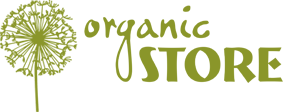aromatherapy
No records found.
Although aromatherapy is considered a form of alternative medicine, there is no doubt in its positive effect on human health. Aromatherapy uses essential oils and other aroma compounds to improve physical and psychological well-being.
Essential oils have been used for hygienic and therapeutic purposes for centuries. The earliest records of their use date back to a number of ancient civilizations. Greeks, Romans, Egyptians, Indians and the Chinese used them in perfumes, cosmetics and personal care products. Essential oils contain compounds known for their useful properties such as antibacterial, anti-fungal, anti-inflammatory, rejuvenating, soothing, energizing, etc. It is these compounds that are responsible for the aromatherapeutic effect of essential oils.
Essential oils can be used to treat respiratory diseases, infections in the oral cavity, and various skin conditions such as acne, psoriasis, eczema, furunculosis, dermatomycosis, etc. Aromatherapy also helps to relieve stress and anxiety, cope with fatigue and insomnia.
There are three main ways to use essential oils in aromatherapy: aerial diffusion, direct inhalation and topical application. Essential oils are diffused with the help of special devices known as aroma lamps or diffusers. They use heat to vaporise essential oils, typically mixed with water. Topical applications include baths, massages, compresses, and therapeutic skin care. Note that in this case volatile oils are usually mixed with carrier oils because undiluted essential oils can irritate the skin or even cause chemical burns. Essential oils can also be added to DIY cosmetics as fragrances or active ingredients.
Essential oils are often used in aromatherapy blends. You can buy ready-made oil blends or create them yourself. While creating your own blends, you should keep in mind that essential oils should complement one another and not clash. Blends of volatile oils with incompatible aromas won’t do you any good and may even cause headache, dizziness, nausea and other unpleasant symptoms.
Here are some examples of compatible essential oils. Bergamot oil can be combined with jasmine oil, ylang-ylang oil, cypress oil, coriander oil, juniper oil, marjoram oil, patchouli oil, chamomile oil, and eucalyptus oil. Silver fir oil is compatible with lavender oil, cedarwood oil, basil oil, rosemary oil, and myrtle oil. Lemon oil goes well with ginger oil, cardamom oil, neroli oil, sandalwood oil, and fennel oil. While blending essential oils, you need to pay attention to their effect (there’s little sense in combining energizing and calming oils) and scent type (flowery, citrus, spicy, woody, or herbal).
Aromatherapy is an easy and pleasant way to treat yourself to gorgeous natural aromas and solve an array of health and beauty problems. And it is especially great that you can buy natural essential oils and oil blends, herbal distillates, carrier oils, aroma lamps, inhalers, and other aromatherapy materials at affordable prices.
Our online shop Organic Store offers a good selection of aromatherapy products including essential oils, carrier oils (coconut oil, avocado oil, grape seed oil, etc.), herbal distillates and nasal inhalers produced by reliable brands such as Green Herb, Flora Secret, Cococare, Parachute, Aromatika, Green Pharmacy, and others. We deliver internationally to any country within the jurisdiction of the Universal Postal Union.
